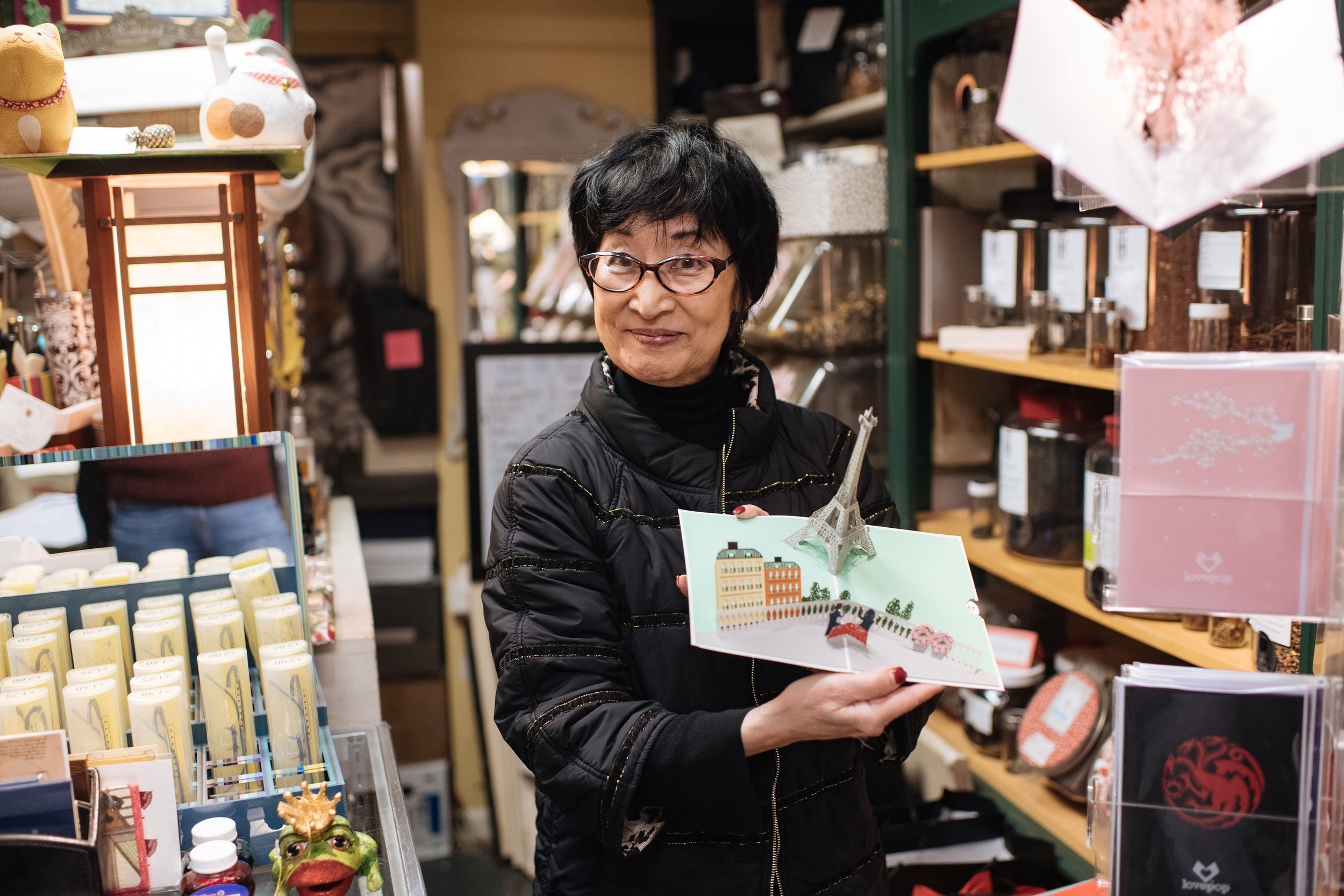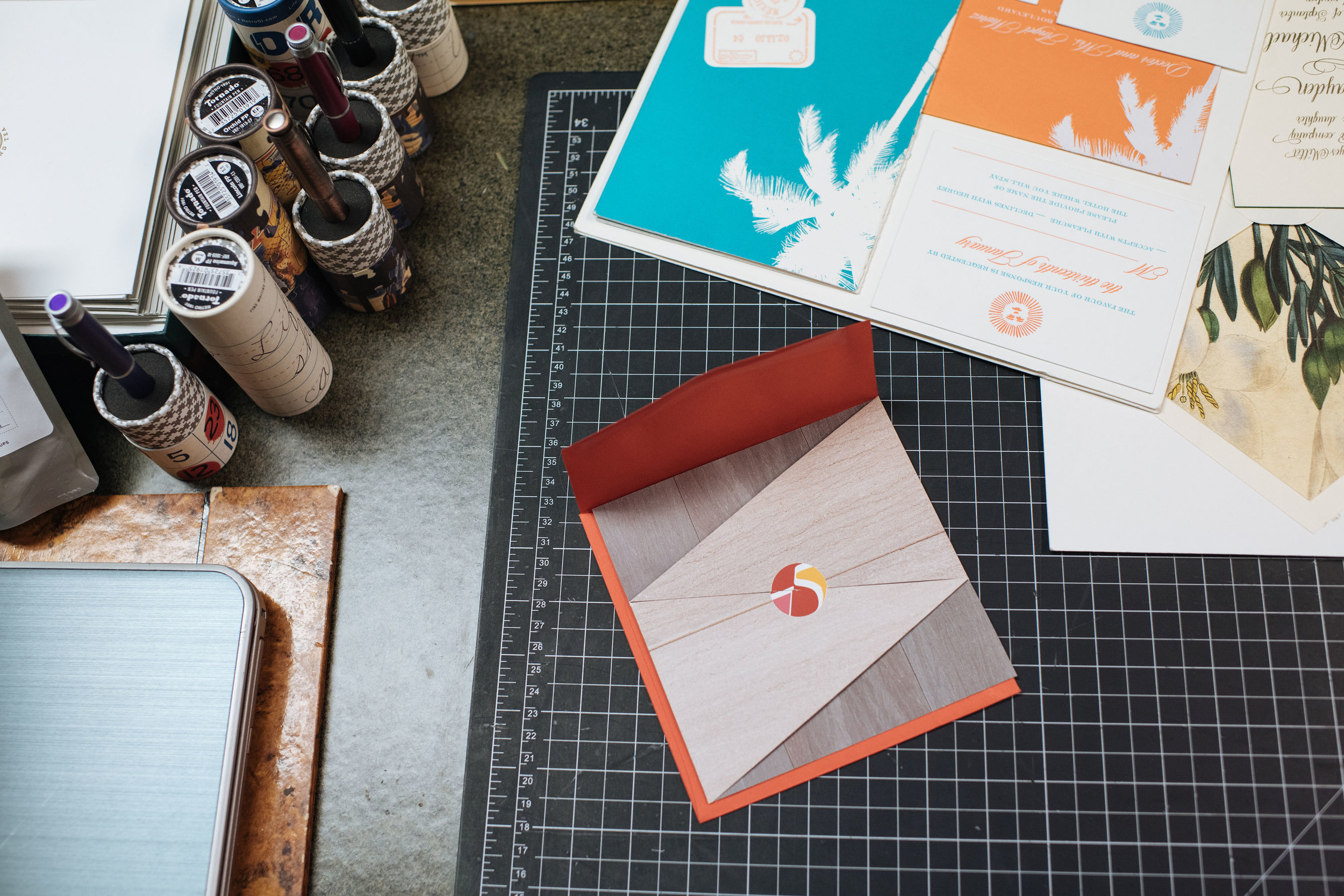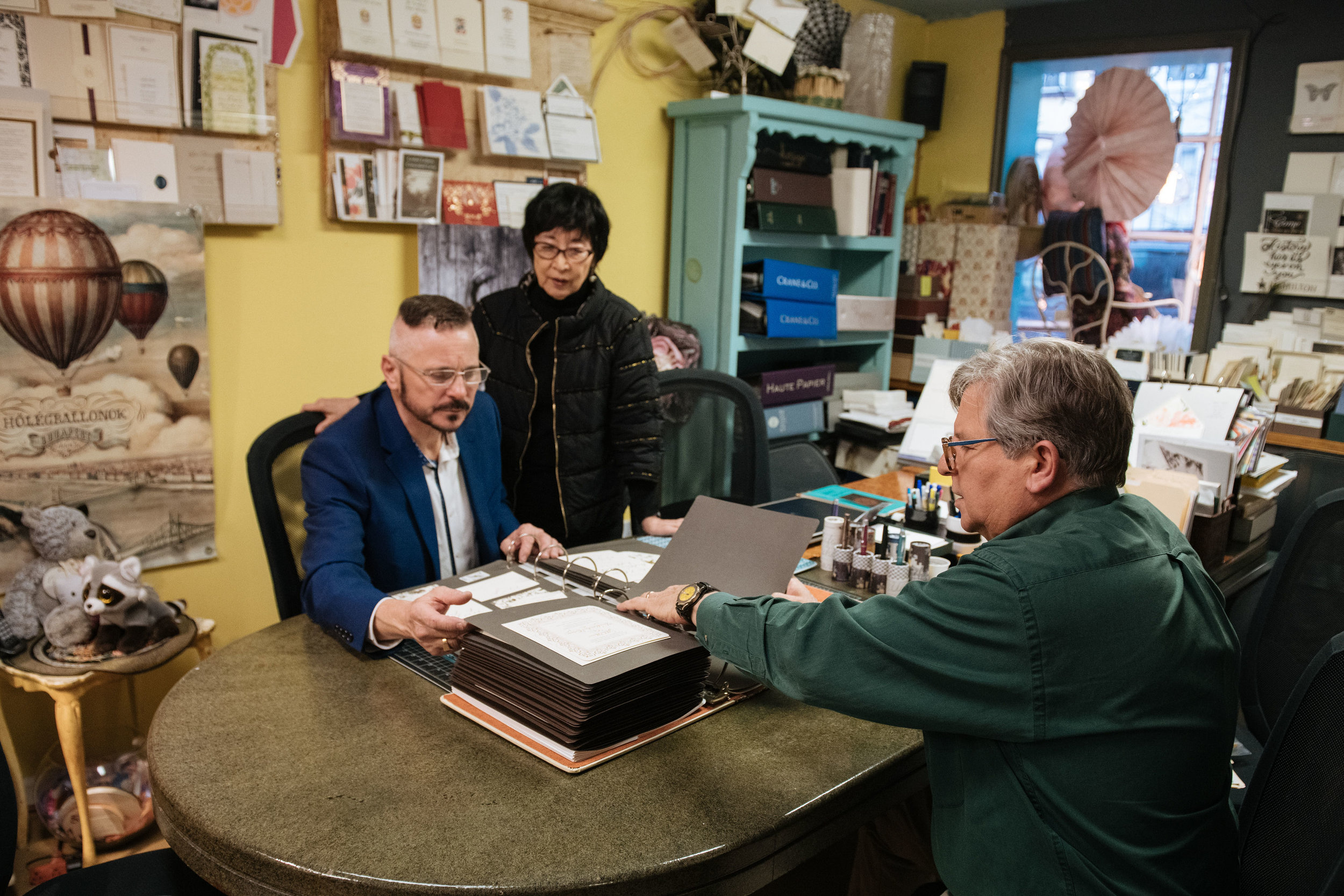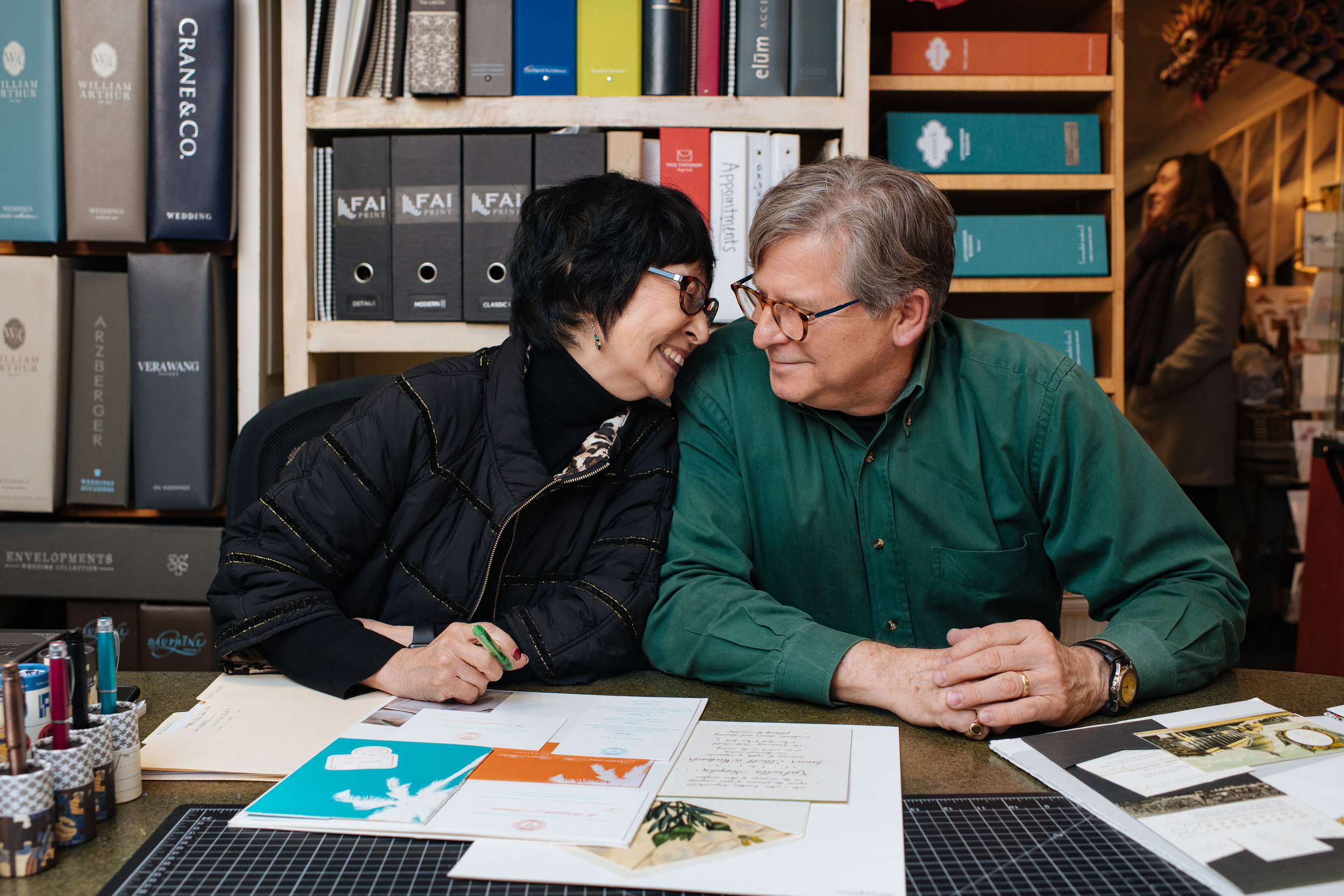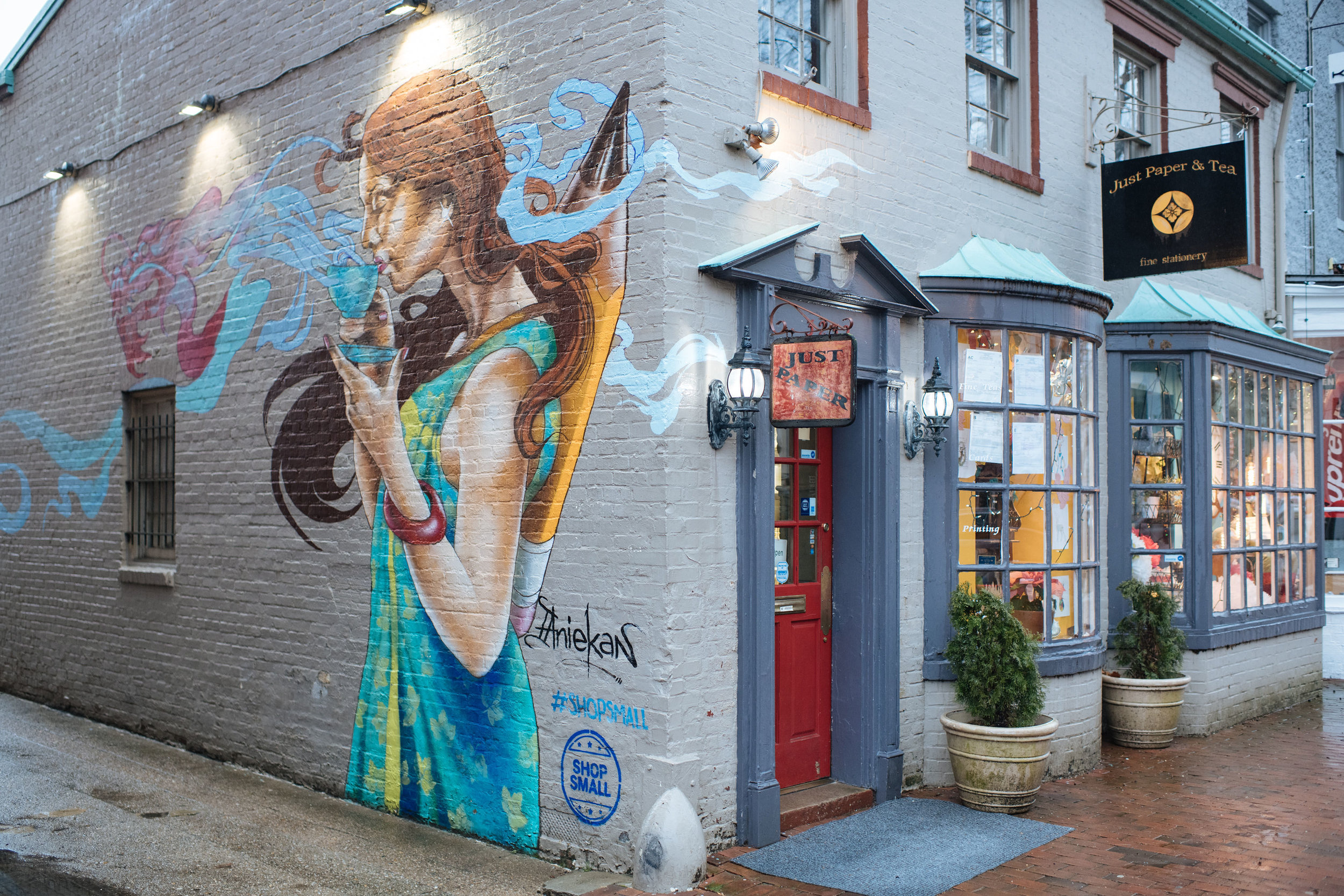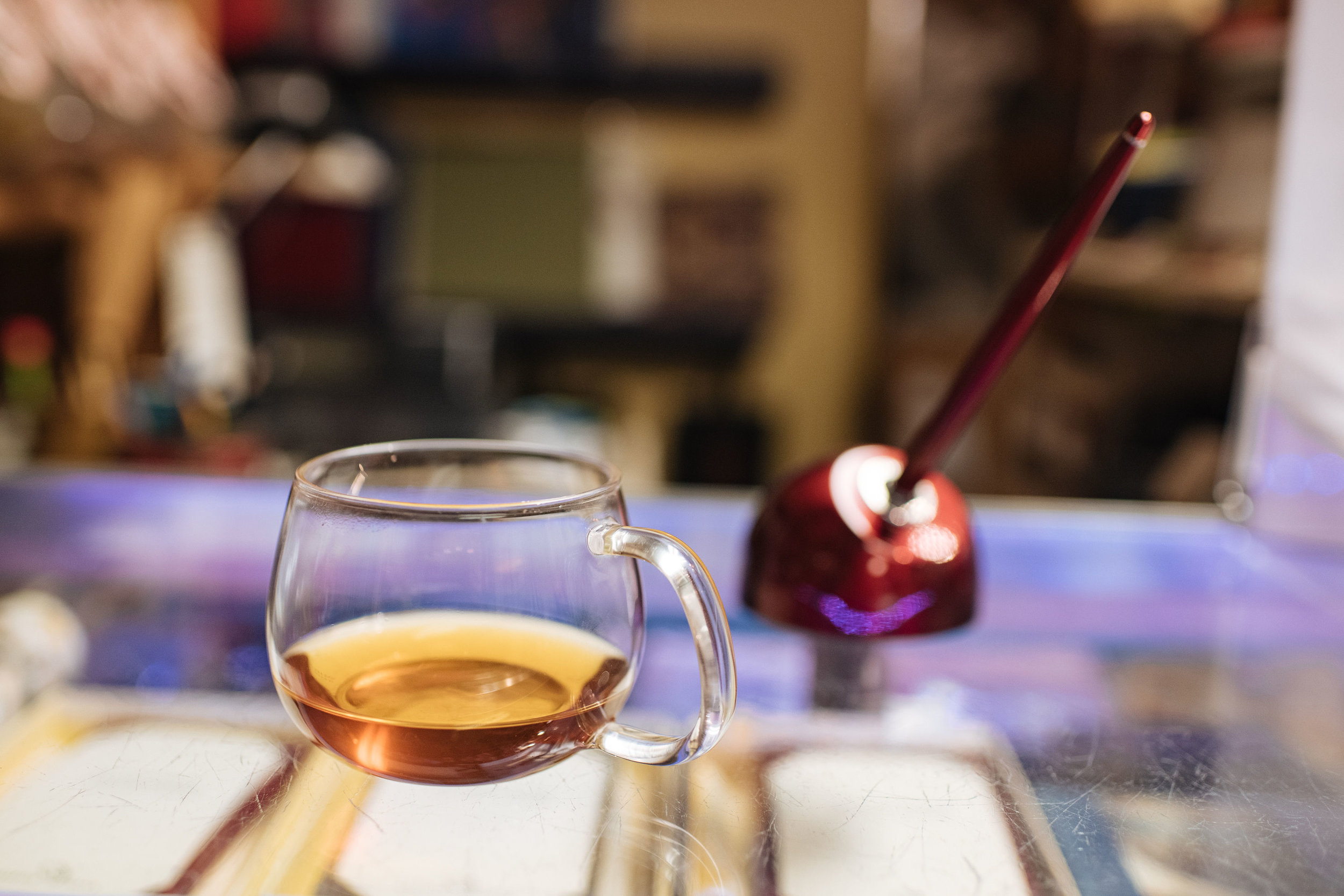‘We Have Magical Stuff Happen in Our Store’
Nick and Carolyn Wasylczuk struck up a conversation with a singer who was browsing through their stationery, offering him a cup of tea for his throat. He returned the favor by performing a 15-minute love ballad.
Afterward, the gentleman casually mentioned he was opening for Madonna.
‘All these neat things happen in Just Paper & Tea, and I’m not really sure why,’ Carolyn says. ‘It’s magical.’
The charming P Street shop will celebrate its 30th anniversary in December, dozens of unbelievable stories amassed over decades of both internal and external change.
Its first iteration, Georgetown Paint and Wallpaper, specialized in faux finishes—a skill Nick acquired through a combination of classes and self-education. He and his wife, Carolyn, worked with the late Anthony Brown, a well-known designer in celebrity circles. By the late 80s, Nick had already worked on Andrew Lloyd Webber’s penthouse in Trump Towers, and was doing all of the faux bois and trompe l'oeil door finishes for Oprah Winfrey’s Indiana estate.
‘Andrew Lloyd Webber would literally bring us wine every night, and coffee in the morning, because we were his art group,’ Carolyn recalls. ‘We’d listen to him and Sarah Brightman practice while we worked on his walls. The beginning of Into the Woods was sitting on one piano, and the original score for Phantom, with all of his notes, was on another. I said, ‘Nick, we’re so damn honest.’ He trusted us to be there.’
Despite such out-of-body experiences, Nick and Carolyn were growing weary of the constant travel—having previously lived on a sailboat in the Caribbean for two years. They decided to plant more permanent roots in DC, opening Georgetown Paint and Wallpaper in 1989.
The paint store and second-floor design studio did very well for several years, until big box stores moved into the neighborhood and sold their paint at cost.
‘We couldn’t mark it up, and we’d also developed an allergic reaction to the paints, so we knew we had to do something else,’ Carolyn says. ‘I was a stationery buyer at Woody’s, so I had that background.’
When the aunt and co-owner of neighboring Perfect Papers passed away, her niece had a proposition for Carolyn.
‘She said, ‘I know you’ve been chomping at the bit to get back into stationery.’ She gave us all her fixtures and the names of her contacts, who were the same ones I bought from at Woody’s.’
Room by room, Georgetown Paint and Wallpaper slowly transitioned into Just Paper & Tea, drawing on yet another of Carolyn’s former lives.
‘Tea was in my background. My family had tea plantations in Japan during the Tokugawa and Meiji periods in the 1800s. People were so excited because there weren’t a lot of tea places in DC.’
Their customers trusted them, and stayed with Nick and Carolyn through the store’s transition.
Today, Just Paper & Tea works with everyone from brides to socialites, diplomats, the Dalai Lama (he loved their tea), and even the former Pope.
‘This guy’s based in Italy,’ Nick says, sliding a cream-colored invitation across the table. ‘That was the menu for Pope Benedict’s 80th birthday when he was here. There was a woman at The Washington Post who used to call all the time because she wanted the inside scoop on who we were working with. We wouldn’t tell her. People trust us, and there’s a lot of security for some of the things we do.’
Although names and accompanying status run the gamut, Nick and Carolyn are committed to ensuring every customer has an amazing experience. All too often, that means quietly putting out fires along the way, whether or not they have anything to do with the invitations.
‘We’ve had fiascos from printers and the client never knows,’ Carolyn says. ‘We won’t allow it to happen. But I can’t tell you the number of times we’ve saved people [one way or another]. We had one bride who’d rented out the entire Mark Hotel in New York. I sent a bottle of Champagne to congratulate them that arrived that Wednesday, and I got a call from the hotel saying the bride’s not arriving until next week. I said it’s not next week—she’s arriving tomorrow. They had double booked. They pulled it off, and she never knew. We don’t tell people those things. It’s silly to, even after the fact. It’s done.’
‘Carolyn’s philosophy is make people happy and keep the energy good,’ Nick adds. ‘It’s so easy to get down and negative. She keeps me up.’
Nick and Carolyn love stationery because their customers are generally very happy—bridezillas and groomzillas aside. They could write a book on wedding stories alone, from the two couples who never made it to the altar, to the father who handed them a check—and requested it not be cashed.
‘He said, ‘I’ll give you part of the money for your work, but we’re trying to get our daughter to leave him,’’ Carolyn says. ‘They never could get rid of him.’
Each client and project is unique. Although Nick says there’s no pinnacle, some experiences (and near mishaps) certainly stand out.
‘We did 250 invitations, and during the assembly and stamping, we realized one of the wedding response cards was missing. It was somehow stuck to another one and we had sealed all of them. Carolyn said we’re going to have to open all of them, and I said wait a minute. We have a small postal scale, so we found the one that was .4 ounces over. Of course it was the last one in the pile.’
‘Panic!’ Carolyn says. ‘So much panic!’
Nick and Carolyn have been fortunate thus far, but their customers know they’re accountable ‘in case shit happens.’ They attribute the rest of their success to always focusing inward.
‘We try to stay in our own bubble,’ Nick says. ‘We don’t look at what everyone else is doing because that just drives you nuts and you lose focus. You start chasing and lose sight.’
Presently, Nick and Carolyn are focused on renovating their second floor, where they plan to host trunk shows, calligraphy classes, tea demonstrations, and more. They’re well versed in adapting with the market, and have a keen understanding of the one thing that will never change: the people.
‘A card isn’t just a card. It’s people,’ Carolyn says. ‘That’s all it is. Every person who comes in is different, has a different story. You have to get inside of who they are to realize where they’re coming from.’
